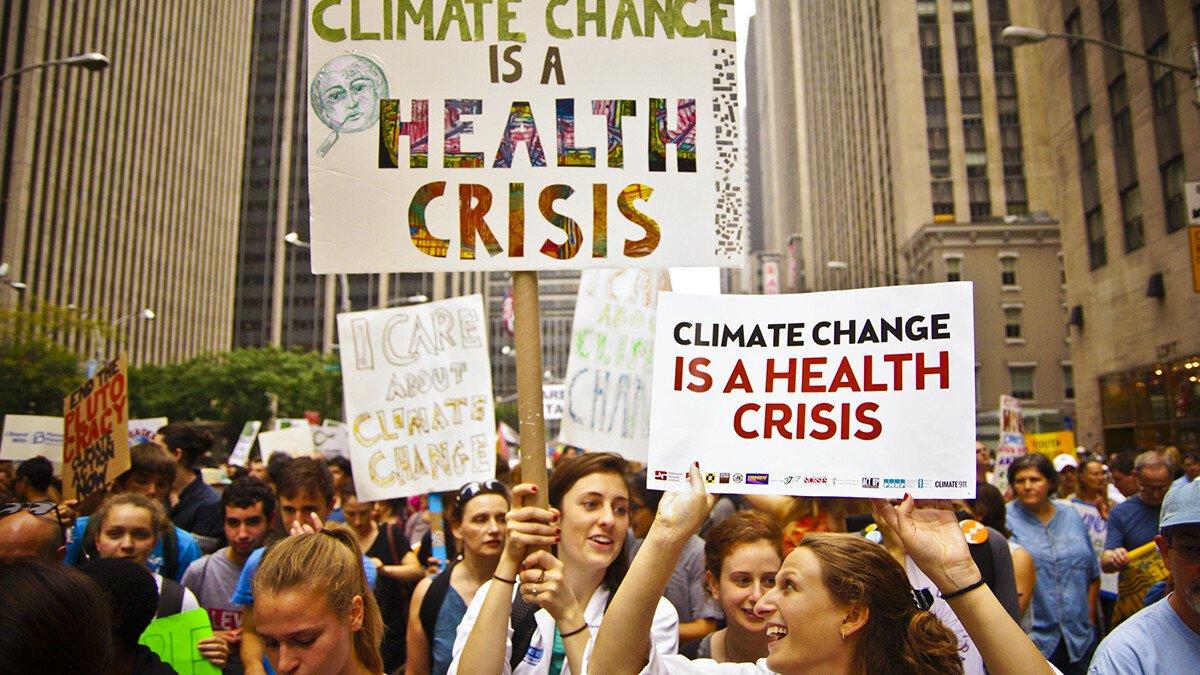Why doctors and nurses can help to heal the Earth
Doctors and nurses are joining global demands for action on climate change – and because of their skills they have the potential for huge influence.

It’s been a long time since I was a clinical doctor – work that I loved. The intimate connections with patients and their families, the opportunity to care (if not always to cure), the window into the endless varieties of human lives – these were unforgettable privileges.
But my career took me from primary care to public health. Now my focus is on planetary health – ensuring Earth is a healthy home for humanity today and for generations to come by confronting urgent global health threats.
Think of our increasingly chaotic global climate; disrupted cycles of water, nitrogen, and phosphorus; the global loss of fertile soils; accelerating species extinctions; and ubiquitous chemical contamination.
It’s no exaggeration to say that, together, these threats endanger the very basis of civilization.
That’s why I’m so heartened that millions of voices are now rising, demanding more responsible planetary stewardship. A courageous youth climate strike movement, inspired by the remarkable Greta Thunberg, is blossoming in more than 100 countries. In the USA, where policy change is especially urgent, the People’s Climate Movement grew out of the historic People’s Climate March, running on grass roots energy. Protests by a cross-section of activists and professionals through the Extinction Rebellion have spread to a dozen countries. Many such campaigns are emerging.
I’m especially heartened at the rise of health professional voices. Doctors and nurses are among the most trusted voices in every society. Our views matter. We have potential for huge influence on this urgent global health issue.
An especially exciting development is Clinicians for Planetary Health – a call to action building on a March 2019 declaration by the World Organization of Family Doctors (WONCA), a global network of over 500,000 family doctors. What a powerful voice!
As I think back to my own days as a clinician, I see a direct thread from primary care to the Clinicians for Planetary Health initiative.
Caring and compassion are at the heart of the health professions. The passion to rescue our planet, so that all people can be healthy, comes from the very same place: compassion on a global scale, across generations.
Listening to the patient is key to clinical work. In taking a careful history, we gather data that guide effective treatment choices. In just the same way, we need to heed the unambiguous signals of wildfires, heat waves, droughts, and hurricanes – and of the human suffering that results.
Attending to urgent health needs comes naturally to clinicians. Confronted with an evolving heart attack in a patient with arthritis and hearing loss, clinicians don’t dither; they treat the heart attack. The disruption of earth systems is urgent, and the window of opportunity for effective action is closing. We need action, now.
Thinking holistically is essential to effective primary care. If my patient’s major problem was getting the heat turned back on, or getting transportation to work, I’d address that need – even if it was outside my expertise and required that I learn new skills. Clinicians aren’t atmospheric scientists or city planners or farmers, but stretching a bit – learning the basics of healthy, sustainable energy policy, transportation policy, and food policy, and advocating accordingly – is 100% within scope.
"First, do no harm," runs the classical medical precept. "Silence becomes cowardice when occasion demands speaking out the whole truth and acting accordingly," said Gandhi. With our passion for health, with our trusted voices, and in the face of a global emergency, speaking out is our duty as doctors. Clinicians for Planetary Health is exemplary.
